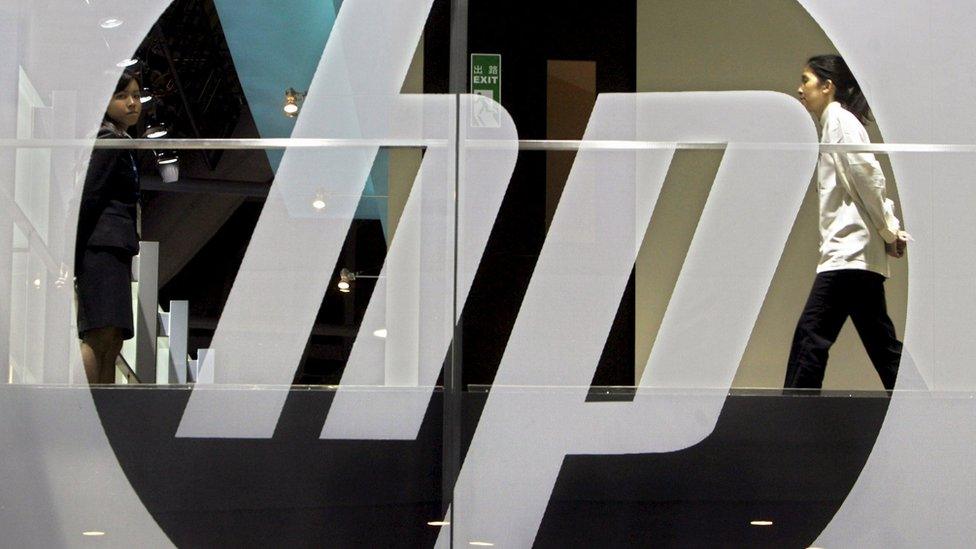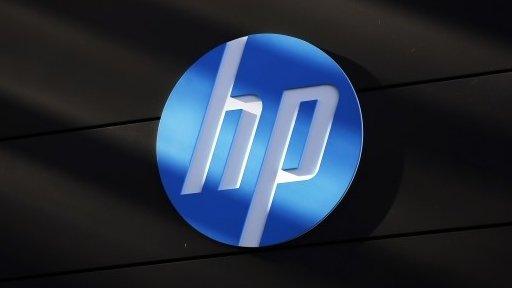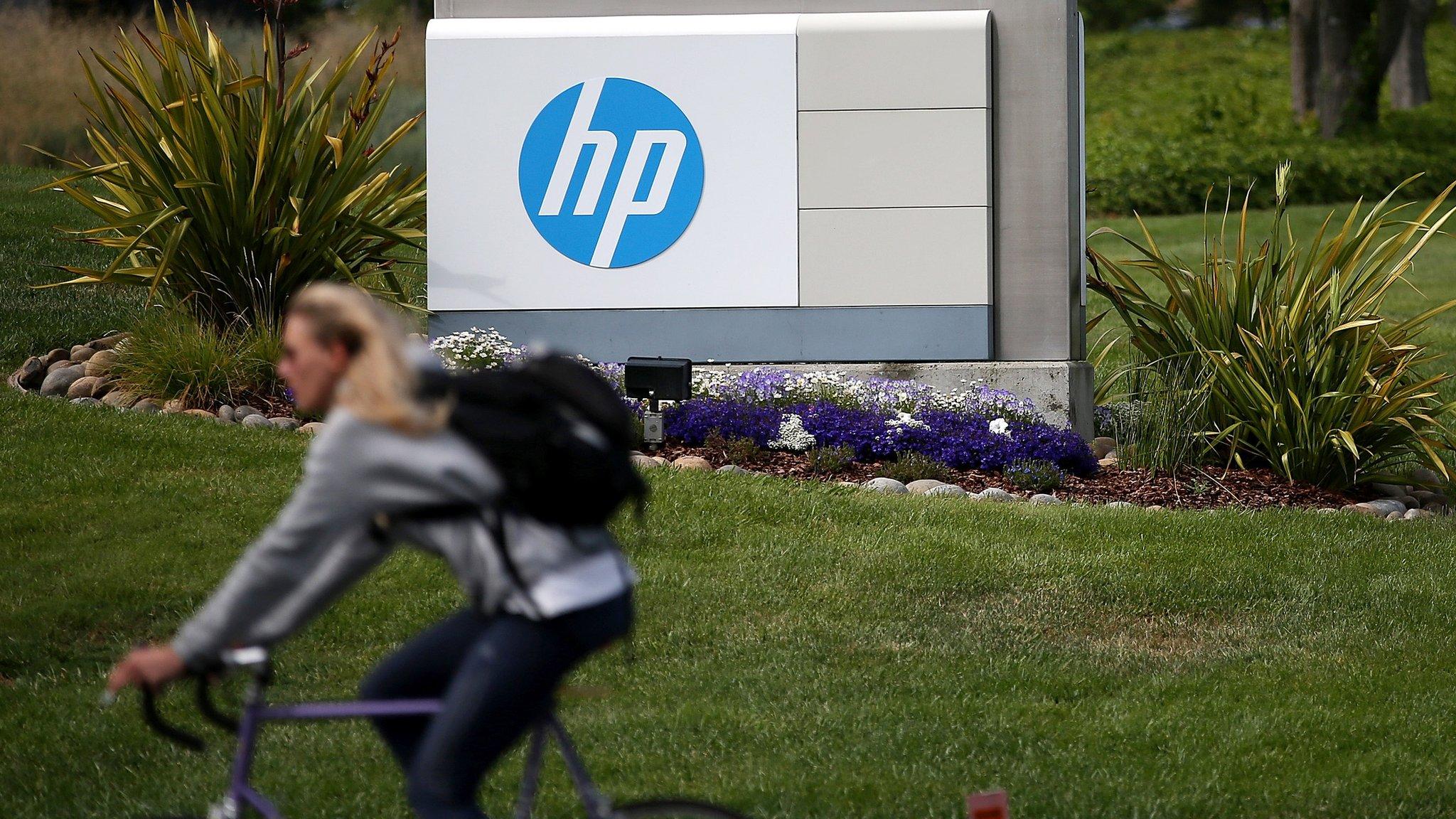Hewlett-Packard to cut up to 30,000 jobs as it plans split
- Published

Hewlett-Packard says it will cut another 25,000-30,000 jobs, or 10% of its workforce, as it plans to split the company in two.
It follows 55,000 job cuts announced earlier this year.
The losses will come in Hewlett Packard Enterprise (HPE), which is splitting from the printer and PC business.
The company says the cuts will save $2.7bn (£1.76bn) in annual costs, although the plan will cost $2.7bn to carry out.
At a meeting for Wall Street analysts, chairman and chief executive Meg Whitman said: "We've done a significant amount of work over the past few years to take costs out and simplify processes and these final actions will eliminate the need for any future corporate restructuring."
The new structure proposed by Ms Whitman sees HP Enterprise focusing primarily on businesses and government agencies, and the PC and printing divisions on the consumer market.
'Low-cost locations'
The company currently has more than 300,000 employees.
"The number is sadly larger than some people might have expected, but I think it's a reflection of how much trouble HP has been having with its services," said Charles King, analyst at the Silicon Valley IT consulting firm Pund-IT.
"I'm frankly not sure if HP is finished with the layoffs."
The company will not say where the cuts will fall, but part of the plan involves changing the nature of the workforce.
The proportion of workers in what HPE calls "low-cost locations" is expected to rise from around 42% now to 60% by 2018.
The tech company has struggled over the last decade to keep up with changing demands as customers move away from desktop computers.
Declining fortunes
However, Hewlett-Packard is still one of the world's largest technology companies, with revenues this year expected to top $50bn.
The company famously started life in a Palo Alto garage in California in 1939 and grew to be the guiding light of what became known as Silicon Valley.
Its fortunes started to decline with a series of expensive and much criticised acquisitions including Compaq for $25bn in 2002, consultants EDS for $14bn in 2008 and Autonomy for $11bn in 2011.
In 2012 it lost its position as the world's leading supplier of PCs to Lenovo.
The share price peaked at the height of the dot.com boom in 2000, and, despite two surges in 2007 and 2010, it has lost some 60% of its value since then.
- Published20 August 2015

- Published6 October 2014

- Published22 May 2015
